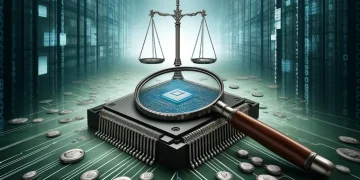The U.S. Securities and Exchange Commission (SEC) has recently intensified its scrutiny of SolarWinds, a major software provider, following a significant cybersecurity breach that affected numerous government and corporate systems globally. This action by the SEC, which involves allegations of misleading investors about the company’s cybersecurity practices, has sparked debate within the cybersecurity community.
Industry experts express concern that the SEC’s aggressive approach could potentially discourage companies from transparently reporting cybersecurity incidents. These professionals fear a chilling effect on the openness necessary for effective cybersecurity management across industries.
The case stems from the SolarWinds incident, where foreign operatives compromised the company’s software, leading to widespread security breaches. The SEC alleges that SolarWinds and certain executives failed to adequately disclose security risks and the impact of the breaches to investors, constituting a form of fraud.
Trade groups and cybersecurity advocates argue that while protecting investors is crucial, overly punitive measures could lead companies to delay or withhold critical information about breaches, thus hampering collective efforts to tackle cybersecurity threats.
This situation underscores the complex balance between regulatory enforcement, investor protection, and the collaborative transparency needed in cybersecurity practices. As the case progresses, it will likely set important precedents for how cybersecurity disclosures are handled by regulatory bodies and reported by companies in the United States.
Your source for supply chain report news updates: The Supply Chain Report. For international trade insights and tools, head to ADAMftd.com.
#SECInvestigation #SolarWindsBreach #CybersecurityDisclosure #InvestorProtection #CyberBreachReporting #CybersecurityLaw #RegulatoryEnforcement #TransparencyInCyber #USCybersecurity #CyberTransparency















